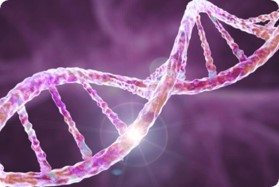Mitochondrial DNA Depletion Syndrome (MDS)

Mitochondrial DNA Depletion Syndrome (MDS) encompasses a collection of uncommon genetic disorders marked by a drastic decrease in mitochondrial DNA levels within the cells of those affected. At our company, we've assembled a team of seasoned professionals with a wealth of experience in navigating drug and therapy development challenges specific to MDS.
Introduction to MDS
Mitochondrial DNA Depletion Syndrome refers to a set of genetic conditions distinguished by a substantial drop in mitochondrial DNA copy numbers. This reduction impacts multiple tissues, resulting in serious health issues. The incidence of these disorders is relatively rare, estimated at around 1 in 10,000 to 1 in 100,000 live births. The presentation can vary widely, including myopathic, hepatopathic, or encephalomyopathic forms, often resulting in early lethality or significant disability.
Pathophysiology of MDS
Mitochondrial DNA Depletion Syndrome is caused by mutations in nuclear genes responsible for mtDNA maintenance, leading to a significant reduction in mtDNA content. This results in impaired mitochondrial function, disrupting ATP production and causing a wide range of symptoms depending on the affected tissues. The syndrome can manifest in various forms, including myopathic, encephalomyopathic, hepatocerebral, and neurogastrointestinal, each associated with specific gene mutations like TK2, FBXL4, and TYMP.
 Fig. 1 mtDNA encodes respiratory chain complexes for electron transport. (Wang, H., et al., 2021)
Fig. 1 mtDNA encodes respiratory chain complexes for electron transport. (Wang, H., et al., 2021)Diagnosis Development of MDS
- Genetic Testing: Identifying mutations in nuclear genes responsible for mtDNA replication and maintenance, such as TK2, FBXL4, TYMP, and others, is crucial for diagnosing MDS. These mutations can be detected using next-generation sequencing techniques.
- Biochemical Markers: Measurements of mtDNA copy number in affected tissues can serve as a direct biomarker of disease severity. Additionally, elevated levels of lactate and pyruvate in blood or cerebrospinal fluid can indicate mitochondrial dysfunction.
Therapeutics Development of MDS

Small Molecule Drugs
Small molecule drugs target specific biochemical pathways to alleviate symptoms or correct underlying defects in mitochondrial function. Drugs like deoxycytidine and deoxythymidine have been used to treat TK2-related MDS by supplementing the pool of nucleotides required for mtDNA synthesis. This helps stabilize mtDNA copy numbers and improve mitochondrial function.
Gene Therapies
Gene therapies offer a potential cure by addressing the root genetic causes of MDS. Mitochondrial Replacement Therapy (MRT), also known as "three-parent IVF," MRT involves replacing defective mitochondria in the egg or embryo with healthy mitochondria from a donor. This technique has been considered for preventing the transmission of mitochondrial disorders from mother to child.

Our Services
Our company adopts a collaborative approach, partnering closely with clients to create tailored and innovative therapy strategies for MDS. Our focus on customized strategies ensures that we meet your individual needs with the highest level of support and guidance.
Platforms of MDS Therapy Development

Animal Models of MDS
We have considerable expertise in developing and employing animal models that accurately replicate the disease characteristics and therapeutic responses seen in MDS. These models are instrumental in investigating the underlying mechanisms and assessing the safety and effectiveness of prospective therapies with precision.
| Non-Genetically Engineering Models | ||
| Our company offers a range of models specifically designed to meet the unique research needs of MDS. These models enable researchers to simulate the disease and delve deeply into its pathogenesis and therapeutic development. | ||
| Optional Models |
|
|
| Genetically Engineered Models | ||
| Our expertise in genetic engineering techniques, enables us to create precise and reliable models to recreate the disease in various model organisms. | ||
| Optional Models |
|
|
| Optional Species | Mice, Rats, Non-human primates, Others | |
Moreover, we provide a variety of detailed animal model services focused on particular signaling pathways and molecular targets.
If you are interested in our services, please don't hesitate to contact us.
References
- Wang, H., et al., "Mitochondrial DNA Depletion Syndrome and Its Associated Cardiac Disease." Front Cardiovasc Med, (2021). 8: p. 808115.
- El-Hattab, A.W. and Scaglia, F., "Mitochondrial DNA depletion syndromes: review and updates of genetic basis, manifestations, and therapeutic options." Neurotherapeutics, (2013). 10(2): p. 186-198.
All of our services and products are intended for preclinical research use only and cannot be used to diagnose, treat or manage patients.
